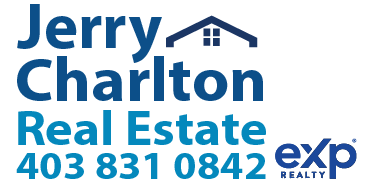A Manual to Prepare your Calgary Home before Selling
“You never get another chance at a first impression.” We have all heard this expression before. And now, while you are preparing your home to sell, it should not be far from your mind.
 While logical factors such as price and location narrow the pool of houses, a potential buyer will look at, the ultimate decision to buy a particular house is fuelled by a mixture of logic and emotion. And emotion often wins out. For this reason, Calgary Real Estate Agents, when they talk to you about buying real estate, will refer to your purchase as a “home.” However, when discussing the sale of your current home, an agent will refer to it as the “house.” This is a conscious choice. The agent knows that buying a house is often an emotional decision, while, when selling a house, emotion should be separated from the process.
While logical factors such as price and location narrow the pool of houses, a potential buyer will look at, the ultimate decision to buy a particular house is fuelled by a mixture of logic and emotion. And emotion often wins out. For this reason, Calgary Real Estate Agents, when they talk to you about buying real estate, will refer to your purchase as a “home.” However, when discussing the sale of your current home, an agent will refer to it as the “house.” This is a conscious choice. The agent knows that buying a house is often an emotional decision, while, when selling a house, emotion should be separated from the process.
Buyers are searching for a “home” - a place where they will feel comfortable, secure, and happy, a place in which they can imagine settling down and raising their family. As the seller, your goal is to cultivate these feelings through the property you are selling. Look at your house as a marketable commodity. A buyer’s emotional response is triggered early, so you want to ensure you have done everything you can to encourage a positive response to your house from the outset. Within minutes, even seconds, of pulling into your driveway, buyers have formed an impression that they will carry with them through the rest of the showing and beyond. Keep in mind. This impression will not only influence whether they make an offer but also what they consider to be the property’s value.
If you have ever visited model homes, you are familiar with effective presentation styles. Have you ever walked into one of these homes and immediately begun taking stock, planning how to get your home to look that good? Well, now is the time to take some of these steps. Of course, there are ways to achieve the same effect in your own home without incurring show home costs.
When homes create this immediate type of emotional appeal, they tend to sell quickly and for more money. Use the following step-by-step guide to get your house into selling shape before you put the property on the Calgary Real Estate Market, and you will be well on your way to a successful sale!
Outside the House
Work your way from the outside in. Your home must possess a certain “Curb Appeal.” Remember, a potential buyer’s first impression of your house is formed while still sitting in the Realtor’s car. So, you need to view your house from this perspective. Stand on the opposite curb and observe your property. Compare it to surrounding properties. Concentrate on the following four areas:
Landscaping
How does your landscaping measure up compared to the rest of the neighbourhood? If you guess it would rate below-average, make a few adjustments. You might want to consider buying some bushes and planting them around the property. If the problem with your yard is not a case of too little greenery but rather too much, get out the pruning shears. The purpose of landscaping is to complement the home, not hide it. Overgrown shrubs should be sheared to a height near the bottom of the windows. Remove any ivy clinging to the side of the house. Tree limbs should be high enough that you are able to walk beneath. Trim any branches that bar the way. Your lawn should be freshly cut and watered and an even colour. If there are brown spots, make sure you begin to remedy this well in advance of putting the house on the market. You may want to re-sod areas, and you need to make sure these spots are given enough time to grow, so they will match the existing lawn. Rake up any leaves or grass cuttings. Planting a few flowers is an easy way to add colour and vibrancy to your yard, enhancing the first impression of your home. Invest in a full flat of mature, colourful flowers, such as petunias or periwinkles, which last the length of the growing season. If you do not have an area in which to plant flowers, consider purchasing a few flower pots for your porch and planting flowers or blooming plants.
House Exterior
When you view your house from across the street, does it appear weathered or faded? If so, it is probably time to treat it to a fresh coat of paint. This is usually a sound investment; new paint can do wonders to increase a home’s perceived value. Stay away from unusual or loud colours. The new colour should fit in with surrounding houses and complement the style and structure of your house.
Examine the roof closely. Old or leaking roofs should be replaced. If there are leaks, you will have to disclose this detail to the homebuyer anyway, and they will want it replaced. If there is not any apparent damage, however, wait for word from the Calgary Home Inspector before making repairs.
The Front Door and Porch
The front door and surrounding area should look particularly fresh and welcoming, as this will be the buyer’s first up-close impression as they enter the house. If you paint nothing else, at least give the door a new coat. Replace the doorbell if it is broken and polish the door fixture until it gleams. Wash the mailbox. Keep the porch swept and buy a new plush doormat. All these little things will contribute to the overall effect of a well-cared-for and welcoming home.
Ensure the lock works smoothly, and the key fits properly. When a homebuyer visits your house, the Realtor will open the front door with a key. You do not want the buyers’ first experience to be of waiting on the doorstep while the Realtor fumbles with the lock.
Depersonalize
This should be one of your first steps when you begin preparing your house to sell. Over the years, a home inevitably becomes tattooed with the owners’ lives, covered with touches that have made it that special place for you. At this point, however, you want buyers to recognize it as a property they could make into their unique place. When a homebuyer walks into a room and sees these personalizing touches—such as photos on the walls or trophy collections—their ability to picture their own lives in this room is jarred, impairing a positive emotional response. So, your first step will be to remove all the family photos, trophies, collectible items, and souvenirs. Pack them all together, so you will have everything you need at your disposal when it comes time to personalize your new home. For the time being, rent a storage space and keep these items there. Do not simply transfer these items to another place in your house. Do not hoard them away in a closet, basement, attic, or garage, as the next step in preparing your home is to minimize clutter—and these areas of your house will all be targeted.
Remove all clutter
The next step on the list is to purge your house of the excess items that have accumulated over the years. This is the hardest part for many people, as they have an emotional investment in many of these things. When you have lived in a house for several years, a build-up of personal effects occurs that is often so gradual that you do not notice space is becoming cluttered. If you need to, bring in an objective friend to help point out areas that could stand to be cleared. Try to stand back yourself and see your house as a buyer might. Survey shelves, countertops, drawers, closets, the basement—all places where clutter often accumulates—to determine what needs to go. Use a system to help you decide: get rid of all items, for example, you have not used in the past five years, and pack up everything that you haven’t used in the past year. Although getting
rid of some things might be hard, try to do it without conscience or remorse. You will be forced to go through this process anyway when you move, and with each box, you eliminate your storage space—and the room in general—begins to look larger. We have broken down the process into specific areas of your house to help you concentrate your efforts:
Kitchen
The kitchen is an ideal place to begin, as it is easy to spot and eliminate the type of clutter that tends to accumulate here. Homebuyers will open your drawers and cabinets as they will want to check if there will be enough room for their own belongings. If the drawers appear cluttered and crowded, this will give them the impression there is not enough space.
• First, remove everything from the counters, even the toaster (the toaster can be stored in a cabinet and brought out when needed).
• Clean out all the cabinets and drawers. Put aside all of the dishes, pots, and pans that you rarely use, then box them and put them in the storage unit you have rented (again, not in the basement or a closet).
• If you, like many people, have a “junk drawer,” clear this out.
• Get rid of the food items in the pantry that you do not use. Begin to use up existing food—let what you have on your shelves dictate your menus from now on.
• Remove all extra cleaning supplies from the shelves beneath the sink. Make sure this area is as empty as possible. You should thoroughly clean this spot as well and check for any water stains that might indicate leaking pipes. Buyers will look in most cabinets and will notice any telltale signs of damage.
Closets
• Go through all clothes and shoes. If you do not wear something anymore, get rid of it. We all have those clothes, too, that we wear only occasionally but cannot bear to give away. Box these items and keep them in the storage unit for a few months.
• Go through all other personal items in the closet. Be ruthless. Weed out everything you do not absolutely need.
• Remove any unsightly boxes from the back of the closet. Put them in storage if need be. Get everything off the floor. Closets should look as though they have enough room to hold additional items.
Furniture
• You may want to tour a few model homes to gauge the type of furniture chosen by design teams to create a spacious yet comfortable atmosphere. Note how that furniture is arranged to cultivate a certain feeling.
• After having armed yourself with some ideas, stand back and look at each of your rooms. What will you need to remove? Remember, most homes contain too much furniture for showings. These are items that you have grown comfortable with and that have become incorporated into your everyday routine. However, each room should offer a sense of spaciousness, so some furniture will likely need to be placed in storage.
Storage Areas
• Basements, garages, attics, and sheds: these are the “junkyard” areas of any given home. It is possible to arrange simple clutter into a certain order, but junk is sent packing to these often-hidden rooms. First, determine which of these boxes and items you need. Can some of it be sent to the dump once and for all?
• Hold a Garage Sale. You’ve heard the saying, “One person’s trash is another’s treasure.” Let these items go to a better home.
• Transfer some items to the rental storage unit. You will want to clear the
storage areas in your house as much as possible for them to appear spacious to potential homebuyers. Buyers want the reassurance that their own excess belongings will find places for storage in their new home.
Inside the House
Once you have cleared the house of excess items, you will have room to work on other areas.
Walls and Ceiling
Examine all the ceilings and walls for water stains or dirt. We do not often look closely at the walls that surround us, so be careful—there could be residual stains from leaks that have long been fixed or an accumulation of dirt in an area you hadn’t noticed.
Painting the walls may be the best investment you can make when preparing your home to sell. You can do it yourself, and relatively inexpensively. Remember, the colours you choose should appeal to the widest range of buyers, not just to your own personal taste. A shade of off-white is the best bet for most rooms, as it makes the space appear larger and bright.
Carpet and Flooring
Does your carpet appear old or worn in areas? Is it an outdated colour or pattern? If the answer to either of these questions is yes, you should consider replacing it. You can find replacement carpeting that is relatively inexpensive. And always opt for neutral colors.
Any visibly broken floor tiles should be replaced. But make sure you do not spend too much on these replacements. The goal is not to revamp the entire home, but, rather, to avoid causing any negative impressions due to noticeable damage or wear around the house.
Doors and Windows
Check the entire house for any cracked or chipped window panes. If they are damaged in any way, replace them. Test all windows, as well, to ensure they open and close easily. Try spraying WD40 on any with which you are having trouble. This should loosen them up.
The same can be done with sticking or creaking doors. A shot of WD40 on the hinges should make the creak disappear. Check to make sure each doorknob turns smoothly and polish it to gleaming.
Odour Check
Begin by airing out the house. Chances are, you would be the last person to notice any strange or unpleasant smell that may be immediately apparent to visitors.
If you smoke indoors, you will want to minimize the smell before you show your home. Take your cigarettes outside for a period of time before you begin showing. Ozone sprays also help eliminate those lingering odours without leaving a masking, perfumed smell.
Be careful if you have a pet. You may have become used to the particular smell of your cat or dog. Make sure litter boxes are kept clean. Keep your dog outdoors as much as possible. You may want to intermittently sprinkle your carpets with carpet fresheners as well.
Plumbing and Fixtures
All sink fixtures should look shiny and fresh. Buy new ones if scrubbing fails to get them into shape. Replacing them can be done easily and inexpensively. Check to make sure all hot and cold faucets are easy to turn and that none of the faucet’s leaks. If you do find a leaking faucet, change the washer. Again, this is an easy and inexpensive procedure.
Finally, check the water pressure of each faucet, and look for any stains on the porcelain of the sinks or tubs.
Once you have covered all these bases, your house will be in prime shape for its time on the Calgary Real Estate Market. Congratulations, you are ready to begin showing!
 Jerry Charlton has the specialized knowledge, experience, training, marketing strategies, negotiation skills, and understanding of the workings of the current Calgary Real Estate Market to help guide you through the steps of the successful home selling process.
Jerry Charlton has the specialized knowledge, experience, training, marketing strategies, negotiation skills, and understanding of the workings of the current Calgary Real Estate Market to help guide you through the steps of the successful home selling process.

 If you are considering looking for a new house, and are a current home-owner, then chances are you're wondering what your strategy should be: do you wait to find the perfect new home before you put your current home on the market, or do you sell first and then look around? You have a few options. Use the following as a guide to explore what might be the best move for you
If you are considering looking for a new house, and are a current home-owner, then chances are you're wondering what your strategy should be: do you wait to find the perfect new home before you put your current home on the market, or do you sell first and then look around? You have a few options. Use the following as a guide to explore what might be the best move for you Each homebuyer has different ideas of what will constitute the ideal home for them, these notions are often based on aesthetic preferences. But one thing that unites all potential homebuyers is the desire to find a home that is fundamentally sound in areas beyond the immediate sweep of the eye and one that will provide a safe, comfortable, and efficient foundation for their life behind a new door.
Each homebuyer has different ideas of what will constitute the ideal home for them, these notions are often based on aesthetic preferences. But one thing that unites all potential homebuyers is the desire to find a home that is fundamentally sound in areas beyond the immediate sweep of the eye and one that will provide a safe, comfortable, and efficient foundation for their life behind a new door. While logical factors such as price and location narrow the pool of houses, a potential buyer will look at, the ultimate decision to buy a particular house is fuelled by a mixture of logic and emotion. And emotion often wins out. For this reason, Calgary Real Estate Agents, when they talk to you about buying real estate, will refer to your purchase as a “home.” However, when discussing the sale of your current home, an agent will refer to it as the “house.” This is a conscious choice. The agent knows that buying a house is often an emotional decision, while, when selling a house, emotion should be separated from the process.
While logical factors such as price and location narrow the pool of houses, a potential buyer will look at, the ultimate decision to buy a particular house is fuelled by a mixture of logic and emotion. And emotion often wins out. For this reason, Calgary Real Estate Agents, when they talk to you about buying real estate, will refer to your purchase as a “home.” However, when discussing the sale of your current home, an agent will refer to it as the “house.” This is a conscious choice. The agent knows that buying a house is often an emotional decision, while, when selling a house, emotion should be separated from the process.

 Household
Household